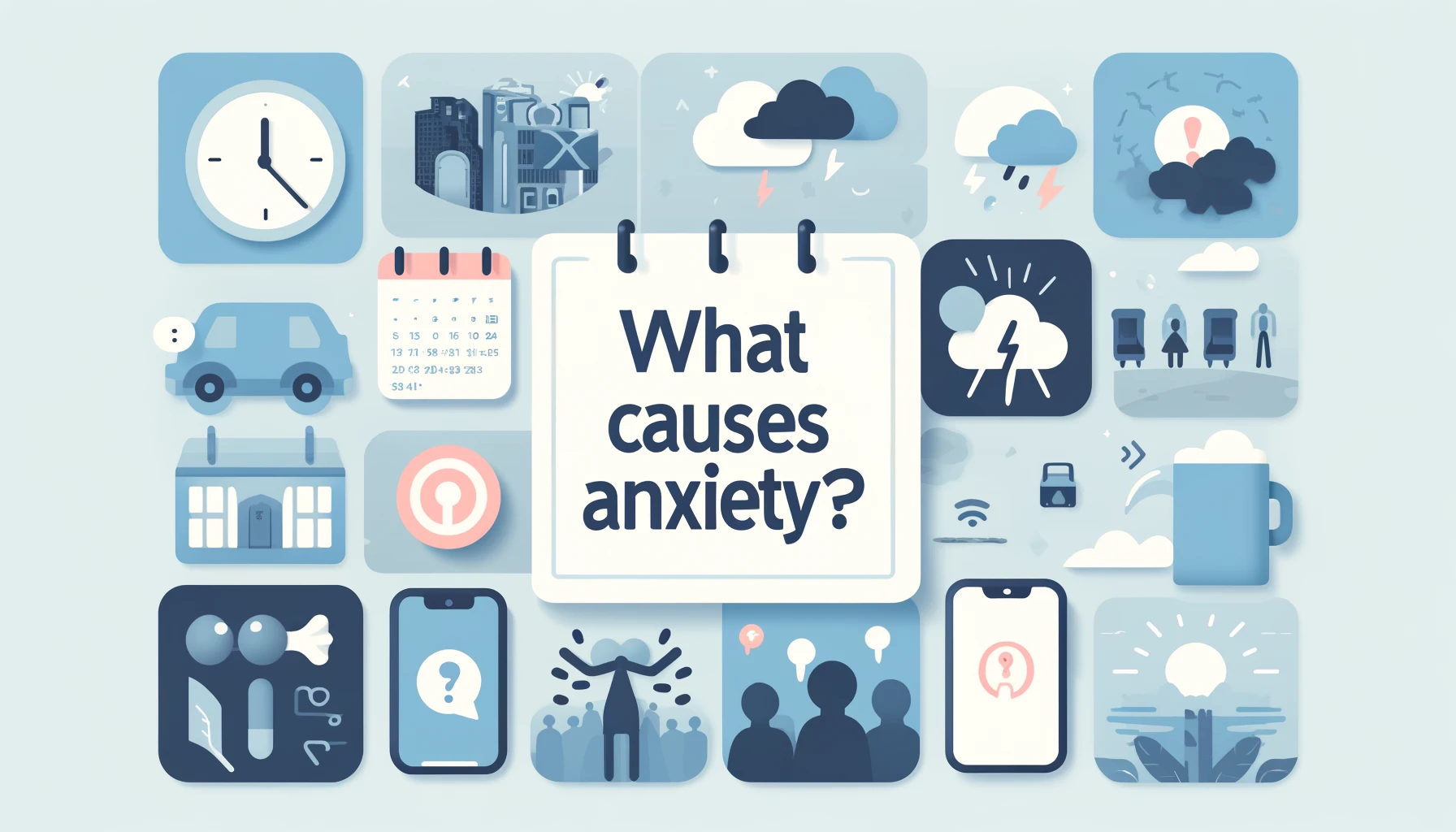
What causes anxiety?
But, we would then ask ourselves about what are the causes of anxiety?
Anxiety may be caused by events, situations, people or objects that are interpreted by the person as capable of causing disruption in the way things have been planned or desired by the individual. Usually, anxiety results from the interpretation of the individual than the actual thing that causes anxiety.
The causes of anxiety may be grouped into two larger categories for ease in understanding. Biological factors are usually non-modifiable since they are affecting the physiology of the individual. The presence of medical conditions such as asthma, cardiovascular conditions or infections are commonly associated with anxiety, and attributed to the nature of the diseases because the exacerbation or attack of their symptoms causes a lot of worrying and apprehension to the person. The mere performance of regular activities or simply going down a flight of stairs may trigger their illnesses.
The use of certain medications or supplements such as taking coffee or herbal teas is also a known cause of anxiety. These beverages contain stimulants that make it easy for the individual to become nervous or distressed by ordinary situations or things. Substance and alcohol abuse also causes anxiety in the individual thus making the person easily aroused or violent in behavior.
Genetics and family tendencies also predispose the development of anxiety and anxiety disorders. A believed theory is that the imbalance of neurotransmitters in the brain causes the sudden surge of nervousness and apprehension noted in anxiety, and making the person act in a very inappropriate manner.
Another theory being subscribed is the presence of changes in the amygdala, a part of the brain that controls fear and strong emotions. This alteration in the structure of the brain results into improper absorption or delayed transmission of signals into the neurons, causing a faulty response to several situations.
These biologic factors that are believed to result to anxiety are managed by pharmacologic or drug therapies. Sedatives such as Valium may be given by the physician to induce relaxation and may ultimately cause sleep in order to depress the anxious behavior. On the other hand, external factors refer to environmental and situational factors that can be modified and managed by the person experiencing anxiety or by other people.
The presence of stressful experiences which may range from the daily fatigue from school and work, difficult to maintain relationships with other people, and presence of traumatic events like abuse, death or disaster. Financial problems and maturation stages in life such as marriage, first day at work, pregnancy or going to college are also known causes of anxiety.
These external factors may be managed by behavioral modification, counseling or psychotherapies. Utilizing of appropriate relaxation and stress management techniques are also useful in these causes.
Knowing and understanding these causes of anxiety is not only crucial for the diagnosis of the anxiety disorder but also in the prevention and management of subsequent anxiety problems.
To sum up what causes Anxiety
Understanding the complex causes of anxiety can vary from person to person, as each individual's experience is unique. However, several common factors contribute to the development of anxiety disorders. Here are ten key reasons:
Genetics: Anxiety disorders can run in families, suggesting a genetic predisposition. Individuals with a family history of anxiety disorders are more likely to develop them themselves.
Brain Chemistry: Imbalances in neurotransmitters like serotonin and dopamine, which regulate mood and emotions, can contribute to anxiety disorders.
Stressful Life Events: Traumatic experiences such as abuse, accidents, or significant life changes like moving, divorce, or loss of a loved one can trigger or exacerbate anxiety.
Personality Factors: Certain personality traits, such as perfectionism, low self-esteem, or a tendency to be highly sensitive, can make individuals more susceptible to anxiety.
Medical Conditions: Underlying health conditions like thyroid disorders, heart disease, or chronic pain can contribute to feelings of anxiety.
Substance Use or Withdrawal: Alcohol, drugs, or even caffeine can worsen anxiety symptoms. Withdrawal from addictive substances can also trigger anxiety.
Hormonal Changes: Fluctuations in hormone levels due to puberty, pregnancy, menopause, or other hormonal disorders can lead to increased anxiety.
Chronic Illness or Pain: Dealing with long-term illnesses or chronic pain can create ongoing stress and anxiety about one's health or future.
Environmental Factors: Factors such as pollution, noise, overcrowding, or living in a high-crime area can contribute to chronic stress and anxiety.
Cognitive Factors: Negative thought patterns, unrealistic expectations, or catastrophizing can perpetuate anxiety and make it more difficult to manage.
It's important to recognize that anxiety disorders are complex and multifaceted, often stemming from a combination of these factors. Seeking professional help and support is crucial for understanding and addressing the underlying causes of anxiety effectively.
